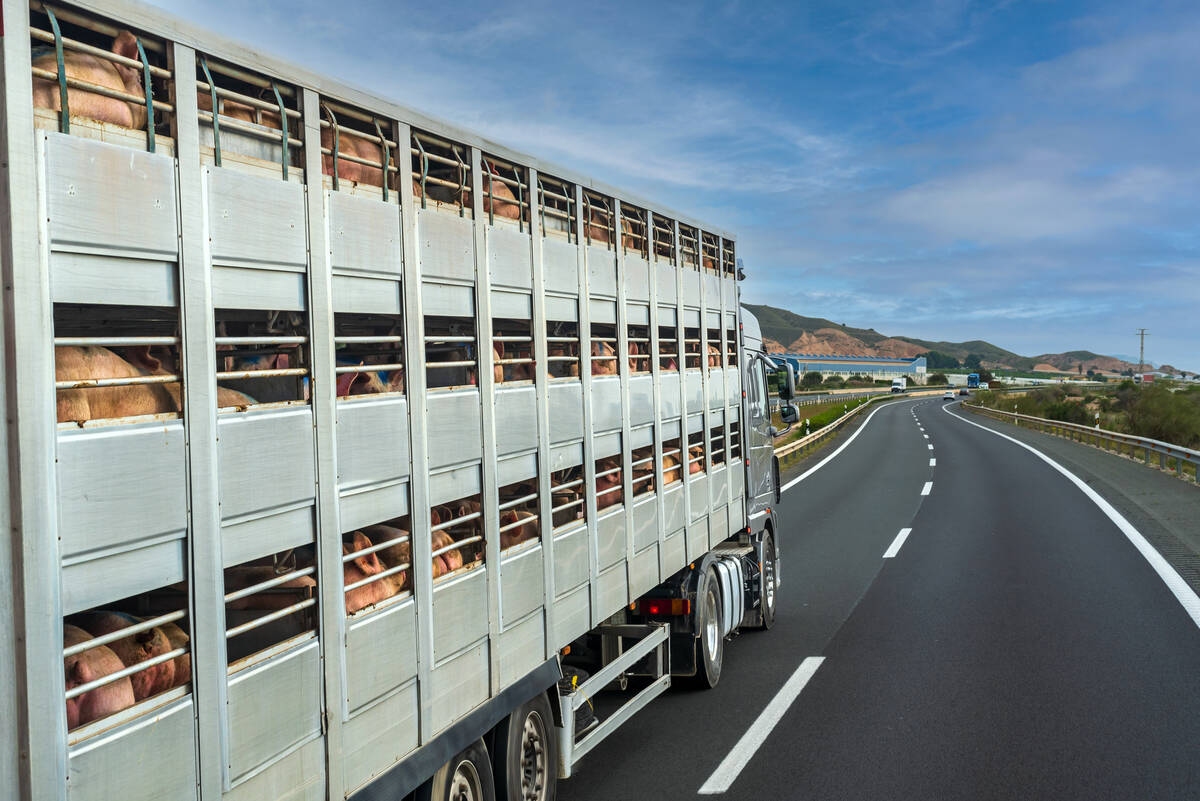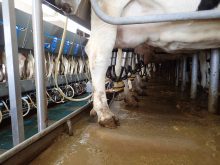Pro-industry advocacy group says consumers have ‘woken up’ and are concerned about modern livestock practices, but willing to listen to farmers’ side of the story
Farmers may have a lot of good science in their corner, but facts alone won’t restore public trust in the food system, according to the head of an industry advocacy group.
“People are asking ethical questions and we’re giving them science-based answers, because we’re not comfortable talking about the ethics,” said Terry Fleck, executive director of the Missouri-based Center for Food Integrity.
“We have to justify the actions we’re doing ethically before we can then use our science.”
Fleck’s organization, founded in 2007, includes a host of U.S. farm groups, major food processors such as Smithfield and ConAgra, universities, and other players in the farm and food sectors. It also has some Canadian members, such as Braeburn Farms and the Egg Producers of Canada.
Read Also

Pig transport stress costs pork sector
Popular livestock trailer designs also increase pig stress during transportation, hitting at meat quality, animal welfare and farm profit, Agriculture and Agri-Food Canada researcher says
Research done by the centre has found consumers still trust farmers, but they aren’t sure today’s food production qualifies as agriculture, Fleck told pork producers and processors attending the 2013 Manitoba Swine Seminar in Winnipeg.
“They’ve woken up and said, ‘When did all the animals move inside barns?’” Fleck said.
Not surprisingly, they’re upset by videos shot by animal rights groups that disparage livestock practices, he said. Manitoba’s hog sector was recently roiled when an animal rights organization released undercover footage shot in a Puratone weanling facility. Fleck noted 32 such videos have been released in the U.S. since 2006.
The best way to combat the negative publicity is to have an ongoing dialogue with non-radicalized animal rights groups and consumers, he said.
“No matter how you cut it, the reality is there are more and more questions today in regards to food, in regards to how it is grown, how it’s presented,” said Fleck.
Building public trust requires producers and food processors to show they have the same values and ethics as the consumer.
To do that, Fleck advocates “radical transparency” when it comes to farm practices and the reasons behind them.
“At the end of the day, if you can’t talk about it, maybe we should find another way to do it, because we have to be able to be transparent,” he said.
While a minority advocates an end to industrial farming, Fleck said most people are only uncomfortable with specific practices employed in conventional agriculture. Often those concerns can be addressed through dialogue or by altering those practices to make them more acceptable, he said. Some producers at the seminar questioned if consumers would be willing to pay more for food if production systems were changed.
“Agriculture is where it is today because of the consumer,” said Rick Prejet. “Consumers have to understand, if they want these changes, if they want to keep some producers, keep family farms and small producers… they are going to have to pay.”
Fleck acknowledged price is still a major driver for consumers, but said a lot can be done that doesn’t involve large-scale production changes.
“It’s not about trying to get the consumer to change their values and beliefs about today’s food system,” he said.
“It’s really about helping them understand that… what you’re doing is probably better aligned with their values and beliefs than what they previously thought.”
Maintaining public trust also has production benefits, namely reduced regulation, litigation and legislation, said Fleck.
“If you align with consumer ethics and values and expectations, and have some form of self-regulating system, for the most part the consumer will give you social licence,” he said.
“And when you have social licence, you have a very flexible system, you have a low-cost system, you can make adjustments and you can make changes, because you have that trust.”


















